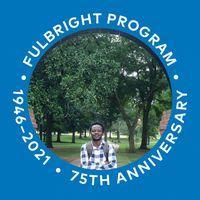-
Posts
79 -
Joined
-
Last visited
Profile Information
-
Gender
Woman
-
Location
Brooklyn, NY
-
Application Season
2020 Fall
-
Program
Communication and Media PhD
Recent Profile Visitors
3,031 profile views
goldenxpenguins's Achievements

Espresso Shot (4/10)
47
Reputation
-
 Julibaker_z reacted to a post in a topic:
Fall 2021 Developmental Psychology
Julibaker_z reacted to a post in a topic:
Fall 2021 Developmental Psychology
-
 pizzarollgotbusted reacted to a post in a topic:
The Reaching Out to PIs thread
pizzarollgotbusted reacted to a post in a topic:
The Reaching Out to PIs thread
-
I'm sure you will be fine! Let me know if you have any questions about U-M's application process
-
goldenxpenguins started following NSF GRFP 2019-2020 , Fall 2021 Developmental Psychology , The Reaching Out to PIs thread and 2 others
-
Hi! Looking at your school list from a few posts ago, I noticed that you have the University of Michigan on it. I got accepted into their Dev Psych program earlier this year with much lower GRE scores than yours so I definitely don't think you'll be screened out (at least not at that program). However, I'm not sure if you should retake for the rest of the programs you want to apply to. If you haven't done so already, maybe check to see if the program websites have the GRE averages of admitted students to gauge whether you should send in your scores.
-
 t_ruth reacted to a post in a topic:
The Reaching Out to PIs thread
t_ruth reacted to a post in a topic:
The Reaching Out to PIs thread
-
 PsyZei reacted to a post in a topic:
The Reaching Out to PIs thread
PsyZei reacted to a post in a topic:
The Reaching Out to PIs thread
-
 psychhealth101 reacted to a post in a topic:
The Reaching Out to PIs thread
psychhealth101 reacted to a post in a topic:
The Reaching Out to PIs thread
-
Hi! When I applied for programs last year, I waited two weeks before sending a follow-up email. One tip that I have is to send the follow-up email in the same thread that you sent your initial email so that the PI can see that you tried to reach out before. Here is the follow-up email template that I used: Dear Dr. [PI's last name], I am following up regarding an email that I sent about two weeks ago. I realize that your schedule is probably very busy, but would greatly appreciate any information that you can provide in relation to my following question. I hope to apply to the [program of interest] at [school name] and I am highly interested in your lab, will you be accepting new graduate students for [Fall 2021]? Best, [your first/last name] Hope this helps!
-
Hi! I just applied for dev psych programs this past application cycle, so don't hesitate to use me as a resource ?.
-
 Hooman08 reacted to a post in a topic:
Applying to Ph.D programs with a master's in psychology
Hooman08 reacted to a post in a topic:
Applying to Ph.D programs with a master's in psychology
-
 Hooman08 reacted to a post in a topic:
Applying to Ph.D programs with a master's in psychology
Hooman08 reacted to a post in a topic:
Applying to Ph.D programs with a master's in psychology
-
 Dazen reacted to a post in a topic:
Reflections & Advice from Fall 2020 cycle
Dazen reacted to a post in a topic:
Reflections & Advice from Fall 2020 cycle
-
HM: E/E E/E E/VG Post-bacc student; Interdisciplinary (Developmental Psychology and Communications) I received really positive reviews that I wasn't expecting, looking forward to applying again!
-

Reflections & Advice from Fall 2020 cycle
goldenxpenguins replied to imemine's topic in Psychology Forum
Visits really do help you see both what you want in a program and what you definitely don't want. Although I didn't get to visit the program I will be attending because of COVID-19, I still think it's the best fit for me after talking to my POIs and grad students! -
 neurologic reacted to a post in a topic:
Reflections & Advice from Fall 2020 cycle
neurologic reacted to a post in a topic:
Reflections & Advice from Fall 2020 cycle
-
 Psychological Yam reacted to a post in a topic:
Reflections & Advice from Fall 2020 cycle
Psychological Yam reacted to a post in a topic:
Reflections & Advice from Fall 2020 cycle
-

Reflections & Advice from Fall 2020 cycle
goldenxpenguins replied to imemine's topic in Psychology Forum
Hi everyone, I hope that you are all doing well! I feel like I've learned so much from this past application cycle and wanted to share it just in case those applying next year (or beyond) can find it useful. Everyone who has commented on this post has made some great points that I will be echoing in my own post, so I hope that's okay! 1. A low GRE score will NOT always lead to the rejection of your application. Now let me preface this by saying that I applied to a mix of programs (i.e., Developmental Psychology, Human Development, and Communications) with a low GRE score (149 V/148 Q) and fully expected my application to be thrown out immediately. I prepared quite a bit for the exam, but it never really panned out the way I was hoping for the two times that I took it. However, the rest of my application was pretty strong, so I think that helped me out a lot. The applicant profile for a few of the programs that I applied to consisted of GRE averages well into the 160s, so I thought that I had absolutely no chance. Definitely strive to get a high GRE score if you can, particularly if you are applying to competitive programs, but don't beat yourself up if that doesn't happen. 2. Quality of your research experience is important! The kind of research experience that you have when you apply is HUGE and really makes a difference. A little background about me is that I didn't start doing research until the summer before my senior year (really late compared to most applicants). This was mainly because I had no idea that you needed research experience to get into grad school (particularly PhD programs) and didn't find out until I entered a program as a sophomore that helps URM (and often first-gen, which I am as well) students with navigating the application process. Also, my undergrad institution never really promoted research as a thing to do. When I applied, I had two years of experience including an REU at a large R1 university and being a research assistant in an independent research lab. I also took basically two years off after I graduated to gain more experience because I knew there was no way that I could be a somewhat competitive applicant if I didn't. I was able to do my own projects on topics that I was interested in and got to be part of all aspects of the research process including manuscript writing (with my REU project). From what I heard during my interviews with faculty members, that initiative really stood out. Don't be afraid to take a few gap years! 3. Get multiple people to read your application materials (especially SOP). Your statement of purpose is probably one of the most, if not the most, important piece of your application. Once you feel like you have a solid draft ready, send it to as many people as you can to get their feedback. For example, my grad student mentor from my REU program was instrumental in helping me fix my SOP. He told me that I should be letting the admissions committee and my POIs know about what I will bring to their research if I was in their program as opposed to just restating the work that they did. This would look like me saying "I want to work with Dr. Brown because she does research on minority youth development" vs. "I hope to expand on the work of Dr. Brown by looking at how racial stereotypes in the media affect minority youth". Out of the two options, I chose to do the latter for my SOPs and I think that helped them to stand out for the most part. 4. Organization is key! The grad school application process can be very long and stressful, especially if you are applying to multiple programs like I did (8). I believe that the main reason why I didn't get completely overwhelmed is because I stayed organized. Some of the resources that I used were Trello and Microsoft Excel. When I started researching programs, I created a detailed spreadsheet on Excel that included application fee amounts, whether the program offered a fee waiver, necessary application materials, etc. It was nice to have all of the information in one place instead of having to go back to the program website each time to find the info that I was looking for. To keep track of whether my letter writers submitted their LORs and when I uploaded different aspects of my application (e.g., SOP, personal statement, writing sample), I used Trello. This is a great tool to use as you can keep a running checklist going of when everything gets sent in, so you don't have to worry about something missing from your application. 5. Apply for fellowships! Don't be afraid to put yourself out there when it comes to applying for fellowships. Admissions committees like to see that you are trying to get external funding and you never know, you could actually get it! I went back and forth on whether it was a good idea for me to apply for the NSF GRFP because I didn't think I had a chance at all. I decided to just go for it and I ended up getting honorable mention! Also, since the GRFP application was due before PhD applications, I was able to use those essays as a template for the ones I wrote for grad school. If you feel like you can put together a solid application, why not do it and see what happens? You could surprise yourself. 6. Interviews are not as bad as you think they will be. I know that the thought of being interviewed by a faculty member can cause a lot of stress and anxiety because of various reasons. You have no idea what questions you will be asked, you don't know if you are answering the questions in a way that shows that you know what you're talking about, and you don't know what impression your interviewer has of you. I went in to my interviews thinking that I would be grilled about everything that I have ever done, but it was the total opposite! I actually really enjoyed all of my interviews because they felt more like conversations. I never got a trick question or one that I couldn't answer, which I was quite surprised about. My advice for interviews would be to definitely prepare (maybe even overprepare) for all of them. Once you get your interview schedule, be sure to know a bit about the work that each of your interviewers do. For your POIs, you should definitely know most of the work they do and have read at least one article of theirs. For non-POIs, I would say to read abstracts of their work instead. By doing this, you will be able to show them that you took the time to actually do research on them and will also be able to steer the conversation in a new direction. My other advice for interviews would be this: HAVE QUESTIONS READY! The main thing that you will hear over and over is whether you have questions, so you need to have some! I created a master list of interview questions that I compiled from r/gradadmissions on Reddit, posts on GradCafe, and ones that I thought of myself and split them up into three sections. One section included questions that I wanted to ask my POIs specifically, the other section had questions for non-POIs, and the last section was for questions that I wanted to ask grad students. I was told at all of my interviews that I had very thought-provoking questions and I think that really helped me stand out as an applicant! I also made "profiles" for each faculty member that I interviewed with that included their picture, their research interests, some info about a project or article that I liked of theirs, and a few questions that I wanted to ask them. You definitely don't have to do this, but I used those when I didn't want to go through my long list of interview questions as a kind of "snapshot". Overall, when interviewing, just be yourself and everything will turn out fine! 7. Trust your gut. This is a HUGE one. If you go to an interview/recruitment weekend and don't feel great vibes about the program, lean into that. My top program ended up changing quite a few times because my original #1 didn't give me the best feelings when I went there. One of the things that I did when I went on visit weekends was that at the end of each one, I wrote a little blurb related to how I felt about each school and that really helped me to come to terms with which program was the best fit for me. The program that I will be attending in the Fall is definitely not the one I thought I would be going to, but it is the one that is for sure the best fit for me and my goals. Don't be surprised if your top school becomes the last school on your list and vice versa. Being able to speak with students in each program was very beneficial in helping me make my final decision, so don't be afraid to talk to them! 8. Be proud of yourself! Last, but not least, be proud of yourself! Applying to grad school is not an easy task by any means and if you are able to prepare even one application, that's amazing! Even if the application cycle doesn't go the way you want it to, you should still be proud of everything that you have accomplished up to this point! I never thought this cycle would go well for me, but I'm so grateful that it did. I don't think it has really sunk in yet that I will be headed to a PhD program in a few months. If no one ever tells you that they are proud of you, I just want to say that I'm proud of you! You are putting yourself out there and that in itself is a great achievement. I apologize for this long wall of text, but I hope that what I wrote is helpful! -

Fall 2020 - Where are you going?
goldenxpenguins replied to Giovanni’s room's topic in Psychology Forum
University of Michigan, Communication and Media PhD (with a focus in Media Psychology). Technically not a Psychology program, but close enough! -
First time applying and I got honorable mention, I'll take it!
-
Good luck everyone! I applied as a post-bacc student with an interdisciplinary proposal in Developmental Psychology and Communications.
-
 goldenxpenguins reacted to a post in a topic:
Fall 2020 Developmental Psychology PhD
goldenxpenguins reacted to a post in a topic:
Fall 2020 Developmental Psychology PhD
-
 goldenxpenguins reacted to a post in a topic:
Fall 2020 Developmental Psychology PhD
goldenxpenguins reacted to a post in a topic:
Fall 2020 Developmental Psychology PhD
-

Fall 2020 Developmental Psychology PhD
goldenxpenguins replied to justacigar's topic in Psychology Forum
@cupidcello and @emotional I would also like to join the rejected from Cornell party ?. -

Fall 2020 Developmental Psychology PhD
goldenxpenguins replied to justacigar's topic in Psychology Forum
For the person who asked about Northwestern's HDSP program on the results page, I received my interview invite email from the program assistant.



